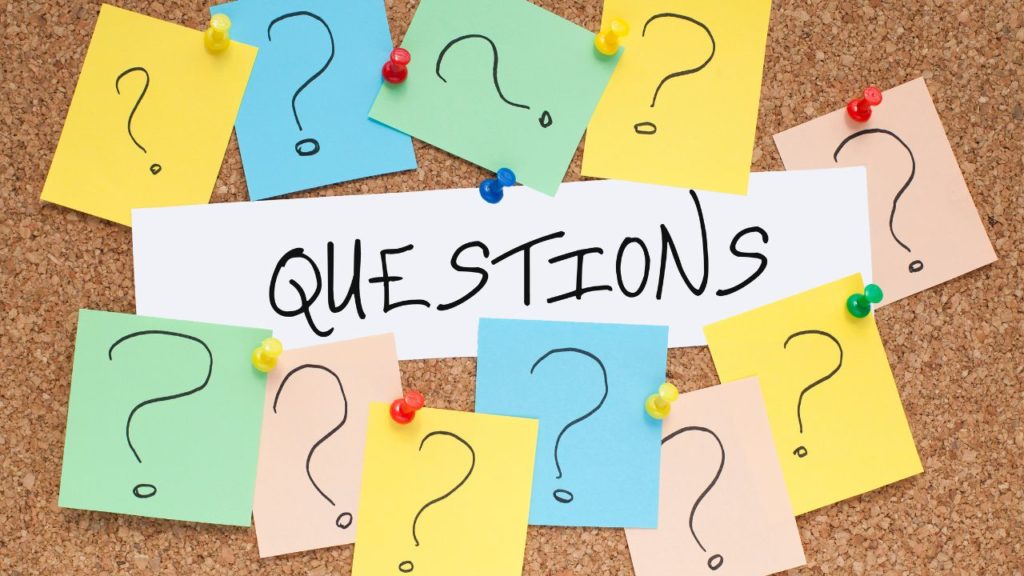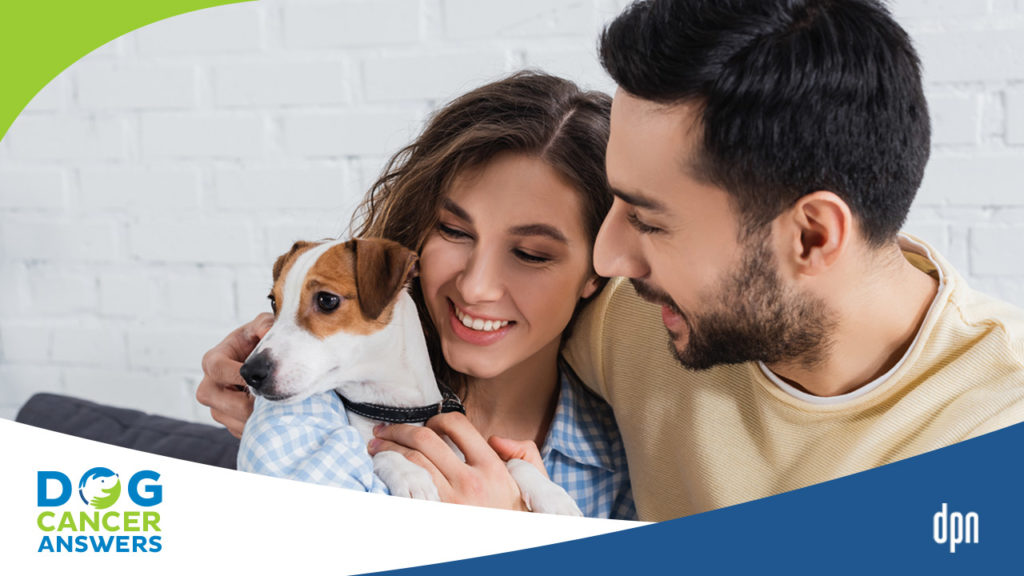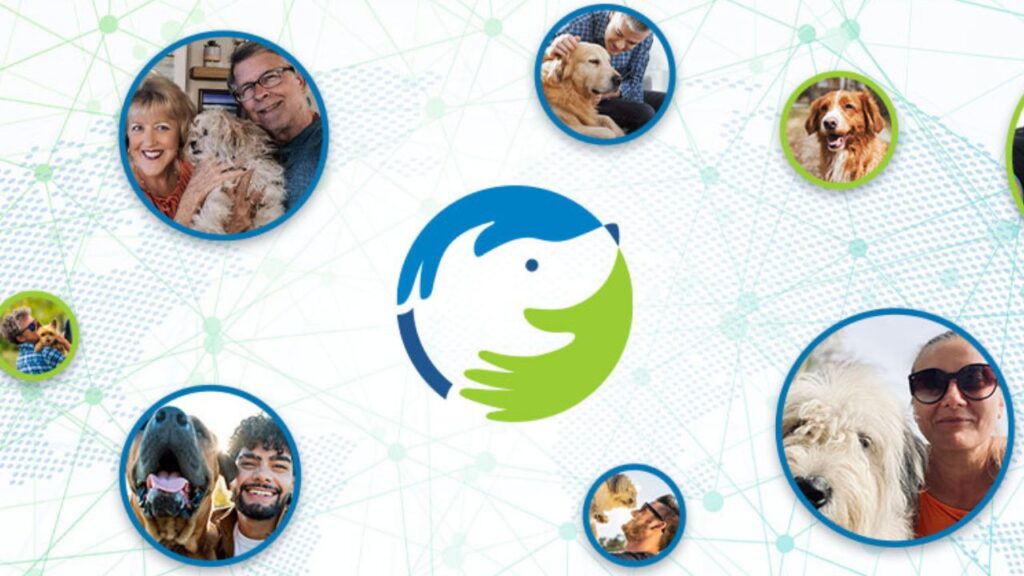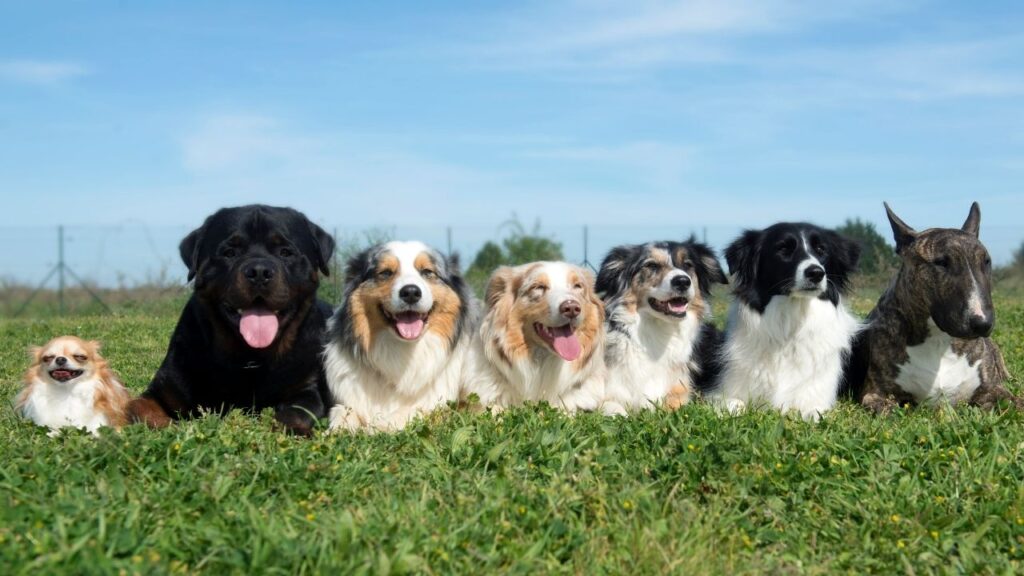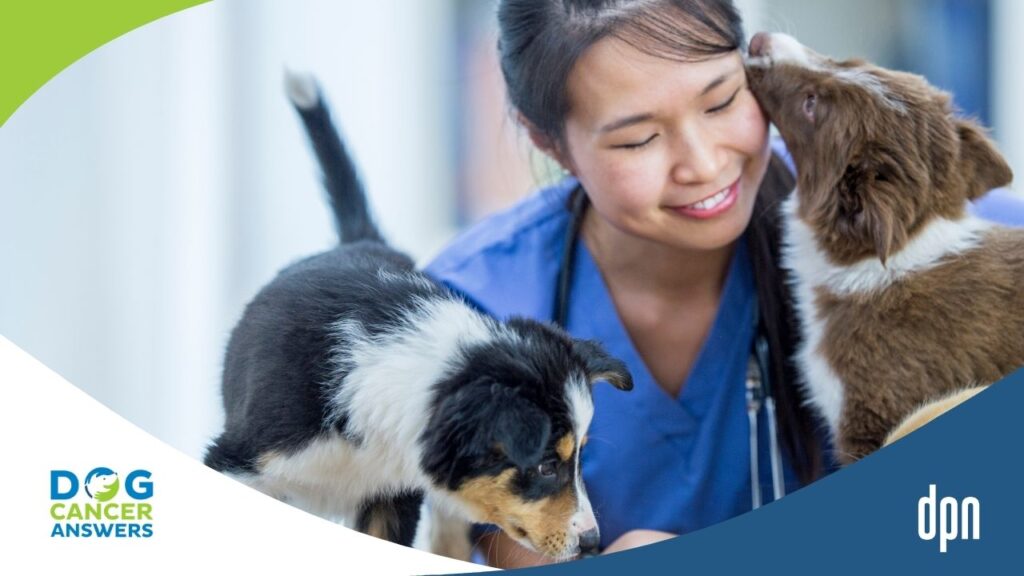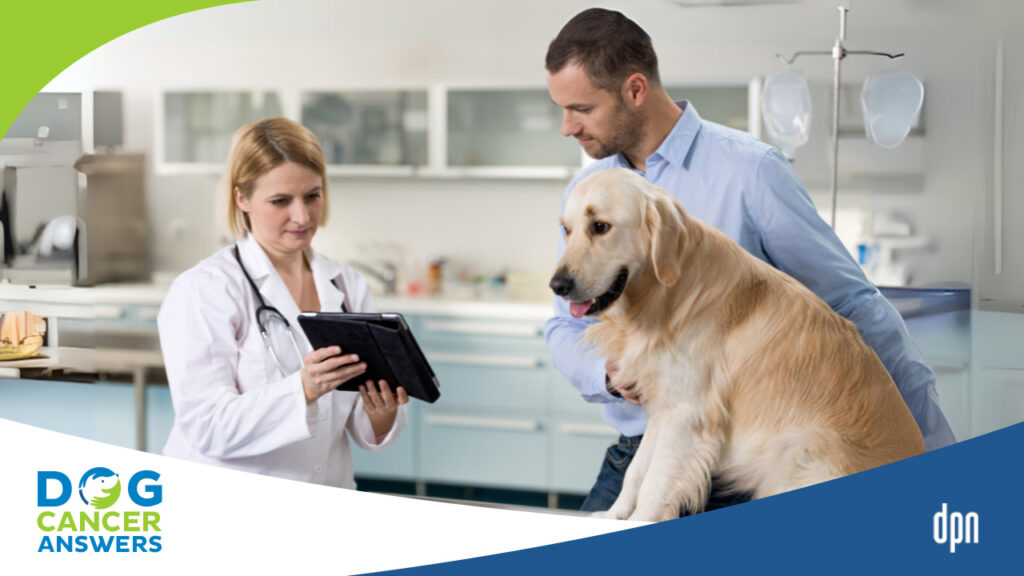EPISODE 89 | RELEASED September 28, 2020
My Dog Has Cancer: What Do I Need to Know? │ Molly Jacobson Deep Dive
The Dog Cancer Support group on Facebook is filled with helpful people. These are the tips they want to share with you.
SHOW NOTES
How do you keep breathing? And should you get an oncologist on board? And how do I cope with my guilt? Members of the Facebook group Dog Cancer Support offer their hard-won wisdom in this special episode of Dog Cancer Answers. Find out the most important things folks wish they’d known sooner, now.
Links & Resources Mentioned in Today’s Show:
To join the private Facebook group for readers of Dr. Dressler’s book “The Dog Cancer Survival Guide,” go to https://dogcancersupport.com
[00:00:00] >> Molly Jacobson: Prognosis is a guess. When they say three to six months, they are looking at the data and we don’t have tons of data on every dog cancer. So some of the data that they have might just be on a handful of studies.
[00:00:16] >> Announcer: Welcome to Dog Cancer Answers, where we help you help your dog with cancer. Here’s your host, James Jacobson.
[00:00:25] >> James Jacobson: Joining us today is Molly Jacobson, editor of The Dog Cancer Survival Guide and also editor of the weekly newsletter Dog Cancer News. Molly’s last name is the same as my last name. And she happens to live at the same residence that I do, and we happen to share the same dog. So I’ll let you draw the conclusions, whatever you want from that.
[00:00:46] Molly, welcome to Dog Cancer Answers.
[00:00:48] >> Molly Jacobson: Thanks for having me.
[00:00:49] >> James Jacobson: So the reason I wanted to have you on Dog Cancer Answers today is I wanted to talk about a really interesting blog post that you wrote earlier this year called My Dog Has Cancer, What do I Need to Know? And it was sort of crowdsourced from people who were in the Dog Cancer Support Facebook group, which is connected to the book.
[00:01:10] So, first of all, why don’t you share with everyone a little bit about Dog Cancer Support?
[00:01:15] >> Molly Jacobson: Absolutely.
[00:01:16] So Dog Cancer Support is a private Facebook group that is filled with readers of The Dog Cancer Survival Guide, Dr. Dressler’s book that he co-authored with Dr. Susan Ettinger. And because of that, it’s filled with really smart compassionate, pragmatic, loving people who I would say their most outstanding quality is that they have really absorbed his no judge mindset. They know that some people do chemo. Some people do radiation and surgery. Some people don’t do any of those things. Some people do only dietary changes.
[00:01:56] Others do only supplements. And some people managed to do all of those and that nobody is made to feel wrong. It’s a really, really supportive, loving group. We’re pretty strict about interrogating people before they come in to keep it that way. And, uh, we have a one strike rule. So we keep it really safe and warm.
[00:02:18] >> James Jacobson: It’s a cool group and it’s free. Anyone can check it out at dogCancerSupport.com. But what made you decide to effectively crowdsource a article for the blog about what people need to know when their dog has cancer?
[00:02:31] >> Molly Jacobson: Well, there were so many times when I was, you know, in the group and reading people’s stories and reading people’s comments on people’s stories and looking at their questions.
[00:02:41] And I realized there’s a lot of wisdom here. And a lot of people will say, oh, I wish I knew this when, in response to someone else’s question, now this is something I wish I’d known when you were, when I was in where you are.
[00:02:54] >> James Jacobson: Okay. So it’s what people wish they knew when they first got a dog cancer diagnosis.
[00:02:59] >> Molly Jacobson: Exactly. And so I posted a question and said, if you would share the things that you wish you knew at the time with us now, I’m going to be crowdsourcing this article. And that’s where it all came from.
[00:03:12] >> James Jacobson: How many responses did you get?
[00:03:13] >> Molly Jacobson: Oh, hundreds.
[00:03:15] >> James Jacobson: Okay.
[00:03:15] This is called from hundreds of people who have basically been in the shoes of getting a dog with cancer and asking what I wish I knew.
[00:03:22] So what are some of the takeaways that you shared in the article?
[00:03:25] >> Molly Jacobson: Well, you know, this wasn’t necessarily something that I got from the group specifically, but the first thing that I wrote about in the article for a reason was that you should just make sure that you breathe.
[00:03:36] >> James Jacobson: Keep breathing.
[00:03:37] >> Molly Jacobson: Keep breathing because. I think it’s the root of all good decisions is to be calm and being calm is next to impossible when you’ve just found out your dog has cancer.
[00:03:49] And so there’s literally a little hack to your central nervous system that you can use, where if you take, you breathe in and out for a count of, I think it’s five. If you do that in for five, hold, out for five and you repeat that seven to eight times, your body is forced to go into a nervous system response that focuses on rest and relaxation and digestion instead of fight or flight. And so if you do that, routinely throughout the day, as many times as you need to, then you can really start to feel at least a little bit of physical calm in your body, which will lead you to make the decisions that you won’t regret later.
[00:04:32] >> James Jacobson: Okay. So keep breathing. That’s that’s a good piece of advice. I think that I like, I like that breathing to five. What are some other tips that people shared with you?
[00:04:40] >> Molly Jacobson: One of the ones that stood out over and over again, was it, you should really be the guardian that Dr. Dressler talks about that you should be your own dog’s best advocate.
[00:04:50] Doesn’t mean you’re in charge of making all of the medical decisions. Like you can’t necessarily be the expert on the medical advice, but you are the expert on your own dog. You’re the expert on yourself, on your finances, on your emotional and time resources. You’re the expert on all of the things that you need to be in order to be the person in charge and leading your team.
[00:05:15] And that it’s really important that you see yourself as your dog’s advocate because the medical system, whether talking human or veterinary, you know, people are not always, they don’t always advocate for themselves the way they need to, and we really need to advocate for our dogs.
[00:05:30] >> James Jacobson: Okay, cool. And then there’s another point that I thought was really good and I’ve learned this the hard way, that diagnosis isn’t always easy and it can take a while.
[00:05:40] >> Molly Jacobson: Ugh. That’s the worst. You know, this feeling that we have of the vet should have cut it earlier, or it didn’t show up on blood tests, or I just had x-rays six months ago. Why didn’t they see it at that time? Or, you know, my dog was in the vet for a routine matter.
[00:05:58] Like our dog, we brought her in to get her checked out before she got her teeth cleaned. And when Dr. Dressler looked at the x-rays, he was like, you know, there’s some like inflammation on her lungs or something. Let’s put her on antibiotics. And thank God ’cause a couple of weeks later when he gave her a routine physical, just to make sure that she was set to go under anesthesia, he actually found a tumor in her belly that hadn’t been there two weeks earlier. Well, it probably had been there, but it wasn’t palpable when he felt that area before. So these things sneak up on us and they develop often unseen both because of dog’s natural stoicism. And also because we’re just not doing routine ultrasounds and x-rays, and some things just don’t show up until it feels too late.
[00:06:45] >> James Jacobson: So that I think leads us to the next point that you talk about in the article, which is don’t watch and wait, get imaging done on a regular basis.
[00:06:53] >> Molly Jacobson: Right. So, you know, obviously I’m always exquisitely sensitive to how much money things cost, right? And so people are sensitive to that.
[00:07:02] This is sort of in an ideal world situation. We would be routinely scanning our dogs, especially as they get older. To just make sure that everything’s okay. The same way that we get mammograms or we get other routine imaging done as we get older as humans. That’s not a bad idea to do for your dog as well.
[00:07:22] Another thing that that addresses and a lot of people experienced was that veterinarians told them, well, let’s just watch and wait and see what happens with that bump. And then later when they finally did imaging, they found spread in places that they had no idea about. And they really felt like if we’d done the imaging sooner, we would have known sooner and we would have made different decisions about treatments, or we would have had more options for treatments.
[00:07:48] So, you know, depending on your budget, of course, I don’t think that imaging is ever a bad idea.
[00:07:54] >> James Jacobson: The next point is really, I guess I blew the surprise, but I guess again, this is crowdsourced. Get a specialist onboard quickly. What was the consensus of thoughts about that?
[00:08:06] >> Molly Jacobson: Well, you know, I was interested in that too, because there were so many people in the group who felt really strongly that the specialist, when they finally went to an oncologist versus their general practice vet, that oncologist had so much great information about which tests were really necessary, which ones were less necessary and really helping them to figure out, you know, where they would get the most leverage out of conventional treatments.
[00:08:34] And if you think about it, if a human has cancer, their GP does not try to treat it. They don’t make recommendations. The same can be said for dogs, that they just, the specialists who spend all day, every day, they just know what’s going on with that particular illness at a level of detail that a GP cannot possibly hope to have.
[00:08:56] And so when you get them on board quickly, like even before the biopsy, what you end up doing is probably saving money on tests because the GP will run more tests, looking for something whereas, the oncologist might be able to figure things out a little sooner or with fewer tests or with very specific tests.
[00:09:14] >> James Jacobson: That’s interesting. And that also connects to the next point that you got, which is prognosis is a guess. It’s not a death sentence.
[00:09:22] >> Molly Jacobson: Absolutely. You know, if I got a tattoo, I think this would be it. Prognosis is a guess. When they say three to six months, they are not making a prediction. They are looking at the data and we don’t have tons of data on every dog cancer.
[00:09:40] So some of the data that they have might just be on a handful of studies and they’re saying, well, this is what we’ve seen so this is sort of the time range we expect, but it’s not something to circle on your calendar. Your dog is not going to match that specifically, just because they said it. And so that is just so important to know that there’s a lot of dogs that beat their prognosis.
[00:10:09] >> James Jacobson: So when you talking about time and beating your prognosis and how long does my dog have, it kind of brings up the next point, which is an interesting one. I think an important one for everyone to know. Your dog does not think about time, the way that you do.
[00:10:23] >> Molly Jacobson: Yeah.
[00:10:24] I mean, I think every dog lover knows that, right?
[00:10:26] Like we come in the door, we’re gone five minutes or five days and they act exactly the same. I really believe that for our dogs a day where we, like go for a walk around the block and then take them to the beach and they get their favorite meal for breakfast, lunch, and dinner, ’cause at this point they’re having three small meals a day instead of two larger ones.
[00:10:49] >> James Jacobson: They’re living the good quality life.
[00:10:50] >> Molly Jacobson: Right. They’re, they’re older. We’re focusing on life quality.
[00:10:53] >> James Jacobson: And hey it’s COVID. Everyone’s home, so.
[00:10:55] >> Molly Jacobson: Right.
[00:10:56] >> James Jacobson: So might as well give them three meals a day.
[00:10:57] >> Molly Jacobson: Exactly. They’re thrilled with this arrangement. They’re also thrilled that we’re home all day. That is for them, I think, a lifetime of pleasure. So we don’t have to worry. They don’t go to the vet and hear oh my God, I have cancer, and then go home and think about how little time they have the way that many people would with the same diagnosis. They go home and say, I’m glad I’m not at the vet anymore. I can’t stand going there. Let’s snuggle.
[00:11:25] >> James Jacobson: That brings up the next point that I want to raise.
[00:11:27] There was in the article, quality of life matters to your dog and to you. Obviously we’re talking about our dogs getting three square meals a day and they’d even get fourth because we get a midnight snack before they go to bed, which is just absurd. But we won’t talk about that. We won’t share our dirty laundry with everyone, but quality of life matters to your dog and to you. Please elaborate.
[00:11:49] >> Molly Jacobson: I believe that dogs want us to be happy. And they want to feel comfortable and healthy in that order. And so when we are stressed out, when we’re busy, when we’re upset, that’s lowering their quality of life. And when they feel pain or not their usual selves, that lowers their quality of life.
[00:12:13] And those are really the only two metrics that they have for happiness. So if they’re not feeling well and we’re not feeling well, then they’re twice as miserable. Now, I don’t want people to go around saying, you know, like they’re Pollyanna and like stuffing their feelings inside. But I do think. That Dr. Dressler was brilliant when he included the emotional management exercises right upfront in the book in chapter two, like before anything else, reminding us that dogs pick up on our emotions and for our own good and for their good, we should manage them. So we should try to express those emotions in healthy ways.
[00:12:54] Get support. Take care of ourselves because our quality of life directly impacts our dogs.
[00:13:01] >> James Jacobson: So speaking of emotions, this is the last point that I want to raise from the article, there are a bunch more, and we’re going to have a link to the article on the show notes to this episode, but I want to raise this point that you have in the article.
[00:13:12] You might feel guilty about things you didn’t know.
[00:13:16] >> Molly Jacobson: That’s the wrong subhead. I know that subhead says you might feel guilty, but it should be, you will feel guilty because I don’t know anybody who doesn’t have terrific guilt burden when their dog has cancer. In fact, just today, on the support group, there was another thread about this, where someone posted that, it just occurred to me that the stress that I’ve been under in the last few months is my mother was undergoing some problems and the pandemic and all of these other things were happening that, that might’ve been impacting my dog. And maybe that’s one of the reasons he got sick. You know, a couple of weeks ago we found the cancer. Maybe, maybe it’s the stress at home that also caused it. And the answer to that is yes, stress can make it harder. It suppresses the immune system, which makes it harder for the immune system to fight off cancer.
[00:14:09] That is like a known fact. However, how can you feel guilty about that? You’re going to, but you can’t do anything about it. You can’t go backwards and fix that. And similarly, a lot of people find out that for example, corn, as an ingredient in a commercial dog food, Is not the healthiest of foods for their dogs to be eating.
[00:14:33] And they kick themselves because they thought they were feeding a really great dog food all these years. And then they think, oh, the dog food caused my dogs cancer. And what’s really important. I think that, you know, Dr. Dressler has told me this personally, it’s in the book and I’ve had to reassure myself over and over again because I struggle with the same thing.
[00:14:52] You can’t control everything. And cancer is something that doesn’t happen because of one thing, it’s always coming from a sort of perfect storm of events. And I’ve read that there are people who think it takes up to six or seven problems in the body to create conditions in which cancer arises. So we just can’t completely prevent it.
[00:15:15] So let’s drop the guilt. Let’s acknowledge that we have the guilt. And let’s just try to give ourselves a lot of slack.
[00:15:23] >> James Jacobson: That is great advice. There is so much useful advice in this article. Again, we’ll have a link in the show notes to today’s episode. There are so many things on Dog Cancer Blog, and we’ll put some other links to helpful articles that you might find useful if you enjoyed our conversation today with Molly.
[00:15:40] And, uh, it’s also good to let people know that, you know, there is this dog cancer support group that is available. It’s free. It is generally recommended for people who have at least some grounding in The Dog Cancer Survival Guide, which by the way, and this is a very nice segue, is the sponsor for today’s episode.
[00:15:58] The Dog Cancer Survival Guide is the bible of dog cancer. Molly is the editor. It’s written by Dr. Demian Dressler and Dr. Susan Ettinger, who is an oncologist in New York. And you can get the e-book version for less than $10 for $9.95. And you can get that or the paperback edition. And here is the website that helps support this podcast where you can get the book, although it is available, wherever fine books are sold, it is DogCancerBook.com. That is DogCancerBook.com. And if you’d like to save a little bit of money, you can use the checkout code when you check out, PODCAST, and you can save 10%. That’s 10% off when you go to DogCancerBook.com, the sponsor for today’s show. Again, Molly Jacobson, editor of The Dog Cancer Survival Guide, thank you for being with us today.
[00:16:48] >> Molly Jacobson: Thanks for having me.
[00:16:49] >> James Jacobson: And that wraps it up for today. I want to thank you for listening and I encourage you to listen in the future by subscribing to Dog Cancer Answers in your favorite podcast app, whether that is Apple or Spotify, or even YouTube.
[00:17:04] From everyone here at Dog Cancer Answers and Dog Podcast Network. I’m James Jacobson wishing you and your dog, a warm Aloha.
[00:17:17] >> Announcer: Thank you for listening to Dog Cancer Answers. If you’d like to connect, please visit our website at DogCancerAnswers.com or call our listener line at (808) 868-3200. And here’s a friendly reminder that you probably already know, this podcast is provided for informational and educational purposes only.
[00:17:36] It’s not meant to take the place of the advice you receive from your dog’s veterinarian. Only veterinarians who examine your dog can give you veterinary advice or diagnose your dog’s medical condition. Your reliance on the information you hear on this podcast is solely at your own risk. If your dog has a specific health problem, contact your veterinarian.
[00:17:54] Also, please keep in mind that veterinary information can change rapidly, therefore, some information may be out of date. Dog Cancer Answers is a presentation of Maui Media in association with Dog Podcast Network.
Hosted By
SUBSCRIBE ON YOUR FAVORITE PLATFORM
Topics
Editor's Picks
CATEGORY


